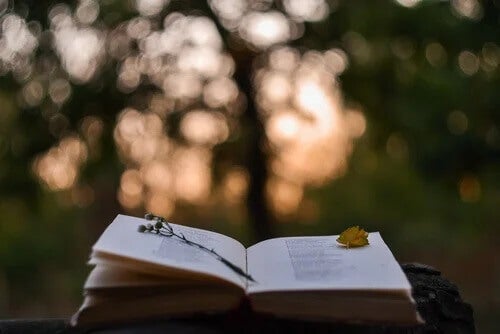Poetry is the oldest document in literature, if it is not possible to accurately date its beginnings in the oral tradition, it is not wrong to say that it has always accompanied humanity, which gives us an idea of the impact that poetic language can have on our affective. cognitive state. In turn, this topic raises many questions about the relationship between poetry and the brain.
Recent studies of brain imaging are beginning to give us many clues about the neural correlates and brain mechanisms involved in reading or listening to poetry.
- Unlike other types of reading that are more associated with various structures located on the left side of the brain.
- Poetry strongly activates areas related to introspection.
- The emotional response to literature.
- In general.
- Shares areas of activation with music.
- However.
- The areas of the right hemisphere are the ones that seem most related to poetry.
Several laboratory studies have been conducted in recent years with the aim of revealing how poetry and the brain are linked. Eugen Wassiliwizky’s team collected data on neuroimaging, psychophysiological and behavioral responses from people who read or listen to poetry.
In psychophysiological responses, the team focused on the electrothermal and cardiovascular reactions of the autonomic nervous system, discovering that poetry is able to trigger emotional responses and very intense emotional experiences, it is a powerful emotional stimulus capable of activating primary areas of brain reward. , measured the pilering, that is, the chills that result from the chills caused by poetry.
If it is found that this type of sensation can also be the result, for example, of listening to music, the chills caused by poetry activate areas of the brain other than those activated by music, in addition, an anticipatory effect was observed in the brain, even if they were poems read or heard for the first time, by the cadence effect and the brain’s recognition of the metric model of the poem.
Bangor University in the UK has led another research project on the effect of poetry on the human brain, whose studies reaffirm the idea that the brain has resources in advance to recognize the rhymes and rhythms of poetry.
It seems that they have discovered that the musical quality of poetry is captured by our brains completely unconsciously, that is, the harmonic properties of poetry seem to stimulate the unconscious parts of the mind, which also suggests a close relationship with the human being. Intuition.
In the study, participants increasingly reacted to poems made with certain metric rhythms, even getting an image of an explosion of electrical activity in the brains of individuals, this electric explosion occurred only a fraction of a second after hearing the last word in one of the lines of the poem.
Poetry is a language game that manages to group words in surprising ways, like a chef who combines ingredients that seemed impossible to combine and that give extraordinary results.
There is a pattern in poetry that seems to restore our desire for order, poetry is based on the construction of rules, a rhythm is established, which is then interrupted and returned, the play of the meanings of words, which sometimes have various meanings in one, It is something extremely intellectually stimulating, we can read a poem thousands of times , reaching new places and meanings in each of them.
“Poetry is the union of two words that were never supposed to come together, and which form a kind of mystery. ” – Federico García Lorca-
Ongoing studies on this subject not only yield interesting results, it seems that it is necessary to begin to promote the idea of the potential of poetry as aesthetic pleasure.
In general, our passage into the wonderful world of poetry is limited by very little exposure during childhood and by the overly analytical approach to this literary genre that occurs in most schools.
Although science applies the scientific method to try to discover the relationship between poetry and the brain, the truth is that poetry is much more than a scanner can tell us, it produces more emotions and chills than those observed by Wassiliwizky’s team. mystery that science has not been able to search: why do good cadences and rhythms animate the mind?This is the new challenge of research.
“Poetry is the feeling left by the heart and left by the hand. -Carmen Count-

